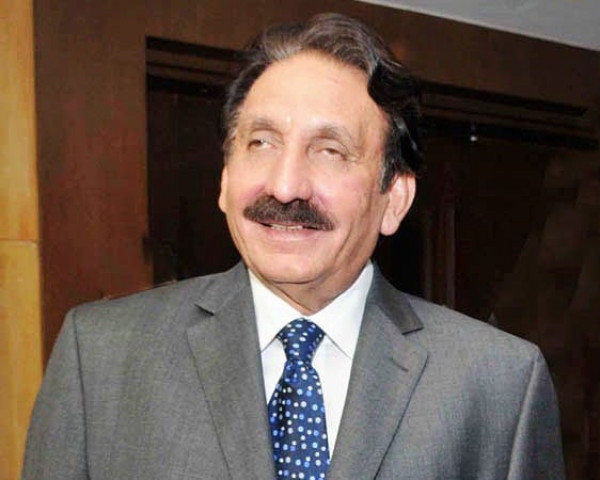Judiciary’s regulatory role misperceived: CJ
Justice Chaudhry says an independent judiciary is a prerequisite for a strong nation.

It is often misunderstood that the judiciary takes action against measures taken by the executive, but it is the constitution which provides this important role to the judiciary for regulating the state machinery, Chief Justice Iftikhar Muhammad Chaudhry said on Sunday. He was addressing the concluding session of the three-day National Judicial Conference.
Highlighting the judiciary’s role as an important pillar of the state, he said that an independent judiciary is the prerequisite for a strong nation.
“If the judiciary is vibrant, dynamic and independent, it will not only provide strength to other state institutions but also establish our credentials in the comity of nations,” the chief justice said.
The constitution of a state determines the independence and autonomy of every organ of the state, yet subjecting it to certain limitations and restrictions, while at the same time ensuring supremacy of the law, which is essential for a country’s economic development.
Announcing a nine-point declaration, Justice Chaudhry said dialogue between the bench, the bar and other stakeholders should be encouraged by creating a sense of ownership on policy matters.
Public-interest litigation, he said, would be more successful with separate benches of judges established to hear human rights cases for a specified time, adding that the commissions should be involved to share the burden of the judiciary.
Other measures, he said, were needed included the adoption of procedural rules by the Supreme Court to channelise the cases, awareness amongst the legal fraternity to report cases of human rights violations to the high courts and holding of preliminary inquiries before initiating suo motu actions. Periodic inter-professional learning workshops should be organised to allow both tiers of the judiciary to vent their grievances and concerns to foster compassion and understanding, he said.
According to the chief justice, measures of deterrence, prevention and education should be applied to counter corruption. “It is necessary to strengthen the courts’ surveillance systems, especially at district level. Malicious and false accusations against the good name of the judicial officers should be strictly discouraged, and addressed with disciplinary action.”
Stressing the need for reforming jails, he said it was necessary to provide an opportunity convicts such an environment that they were able to be reintegrated into society as responsible and law-abiding citizens after serving their sentences. Prisoners, he said, should be treated humanely and their recognised rights should be protected.
According to him, the jail manual is a comprehensive document, but many of its provisions are not being enforced. He said the jail authorities should adhere to it.
He said that plagiarism and counterfeiting should be treated as theft, deception and robbery. State-of-the-art and contextually-relevant information technology should be used to solve the widely known problems of the Pakistani justice system, he said, adding that the power of IT should be harnessed in court management and case management.
Published in The Express Tribune, April 25th, 2011.



1724319076-0/Untitled-design-(5)1724319076-0-208x130.webp)















COMMENTS
Comments are moderated and generally will be posted if they are on-topic and not abusive.
For more information, please see our Comments FAQ